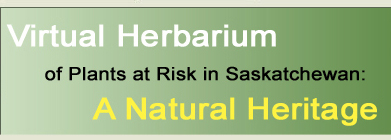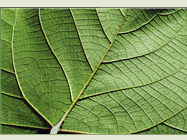
|

|

|

|

|

|

|
|
|
|
|
|
Species Image Gallery (opens in a new window) |
||
| THE SUNFLOWER FAMILY | ||
| The sunflowers are found around the
globe in many different places, from temperate climates, like in Saskatchewan,
to mountains or in dry regions. The sunflower family is very large and contains
about 19,000 species! As you can imagine, the plants in this family can
look very different from one another. The sunflowers can be shrubs or herbs,
with many different leaf shapes and flower colours. One thing that is common
to all sunflowers is the type of flower arrangement. In this family, there
are many flowers grouped together into a head, like the one you see on a
daisy. It looks like one flower from a distance, but when you get close
you will see that it is actually made up of many, small flowers. The head
may have ray flowers on the outside and disc flowers on the inside, or only
one of the two kinds. Many of the seeds, like the dandelion, have a fluffy
structure attached to the seed. This is called the pappus and helps the
seeds to spread in the wind. You probably know a lot of plants in the sunflower family. Sunflowers can be plants you eat or plants that you may grow in the yard. For example, did you know that lettuce is from the sunflower family? So are the marigolds in the garden! Maybe you have heard of Echinacea? It is a plant in the sunflower family that is used to make medicine. Some of the sunflowers are also weeds, like the dandelion. |
||
| SMOOTH RABBITBRUSH | ||
| LATIN NAME: Ericameria nauseosa var. glabrata | ||
| WHAT DOES IT LOOK LIKE? | ||
| Smooth rabbitbrush is 20 to 60 cm tall. The stem has a woody base and the taproots can often been seen. The woody stem is branched and is covered in a mat of hairs and resin that looks like bark until it is scraped. The leaves are alternate on the stem, have no leaf stalk, and are 3 to 5 mm long and 1 to 2 mm wide. The heads are in clusters at the top of the stem. The heads have 20 to 25 bracts in three distinct rows, with the inner row being longer than the outer. The bracts are boat-shaped and straw-coloured with a brown midvein. The fruits are slender and hairy and have a pappus of brownish, barbed, bristles. | ||
| WHERE DOES IT GROW? | ||
| Smooth rabbitbrush grows on open, dry hills and plains. | ||
| WHERE IS IT FOUND IN SASKATCHEWAN? | ||
| This plant is found in southeastern Saskatchewan in the Moist Mixed Grassland Ecoregion. | ||
| WHY IS IT RARE? | ||
| There is no information why this species is vulnerable in Saskatchewan; however, it is only found in one small area of the province and is isolated from the other populations which are found in British Columbia. | ||
| HOW TO IDENTIFY SMOOTH RABBITBRUSH | ||
| * Are the ray flowers absent? * Are the stems woody? * Are the bracts in several, distinct series? * Did you find it southeastern Saskatchewan? |
||
| If you answered yes to all of these questions, you may have found smooth rabbitbrush! | ||